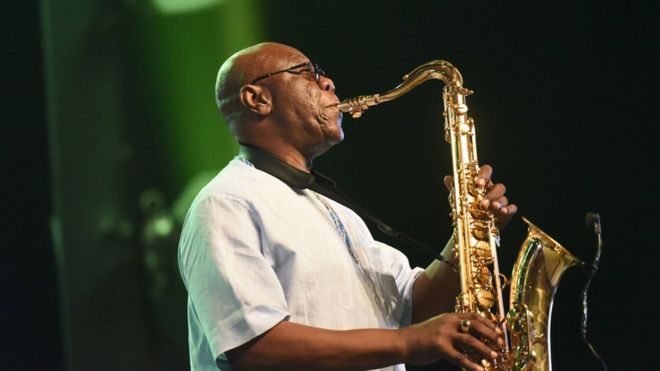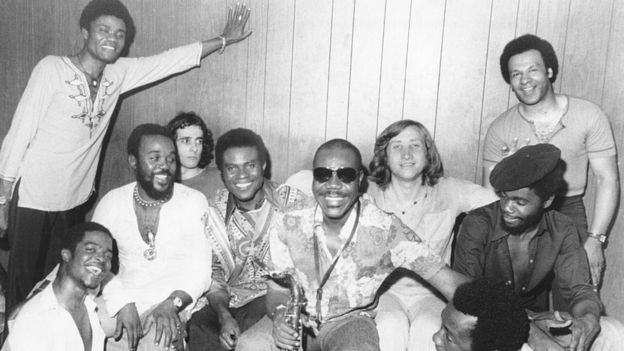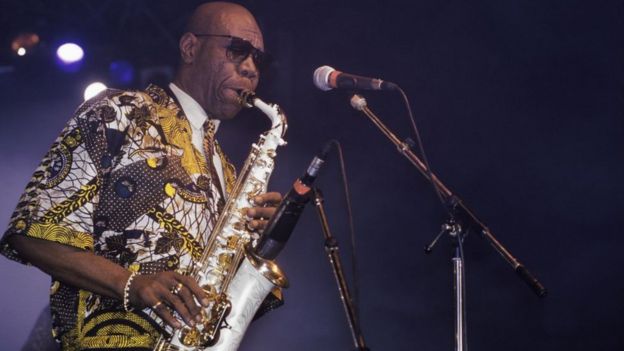this rare 10″ by guitarist Francis Bebey was found in a box of records that I got from a good friend. Thanks for such a wonderful gift!
Unfortunately this record had once been a bit too close to a heat source, causing damage to the edge of the cover and the disc itself. The edge of the record has a warp so that side A can no longer be played, but fortunately side B plays quite nicely.
Because these recordings are so beautiful and unique, I want to share them with you.
see also Yuletide Griots Riot

Francis Bebey, who was born on the 15th of July 1929 in Douala Cameroon, is both a composer and guitarist.
His compositions as presented to the public during various European recitals, are neither African folk music nor jazz, nor Western classical music. His music remains deeply attached tot he values of the African negro tradition, as he knew and lived it during his childhood.

About ‘Black Tears’
Francis Bebey in a Q/A with Lepold Sedar Senghor -from a 1965 interview with Francis Bebey on the liner notes of the original cover.
A: ‘Black Tears ‘has three main themes: the first one represents tears of sadness and despair; the third, which is gayer, denotes tears of joy.
Q: You mean laughing till one cries?
A: Exactly
Q: and the little tune which recurs from time to time, and on which the piece ends?
A: That is the theme of Life –always serene and indifferent to sorrow, pettiness or racial prejudice –Life, which has always been beautiful, ever since Creation
Q: in the tears of joy passage we hear a real African tom-tom sequence. Who accompanied you in this movement?
A: No-one
Q: You mean you superimposed it later?
A: Not at all. It was played at the same time, on the guitar. Of course, I was very happy when the idea came to me, and when I was first able to realize it. But I think we have talked enough –how about some music?
From the liner notes of Francis Bebey –Pieces pour guitare seule –Compositions for solo guitar
(Ocora Records OCR 27 –France – 1965)











 ….thanks to reader Afrikola for the following update; ‘…This came out on the album ‘Afrodelic’ as Fiesta 360.058 in 1973 and got re-released on Hi&Fly Records, H&F 0019 in 2006′.
….thanks to reader Afrikola for the following update; ‘…This came out on the album ‘Afrodelic’ as Fiesta 360.058 in 1973 and got re-released on Hi&Fly Records, H&F 0019 in 2006′.
 last Christmas my review and mix of the past year represented the fertile music of South Africa, this year Soul Safari criss-crosses the whole continent in search of music treasures.
last Christmas my review and mix of the past year represented the fertile music of South Africa, this year Soul Safari criss-crosses the whole continent in search of music treasures.







